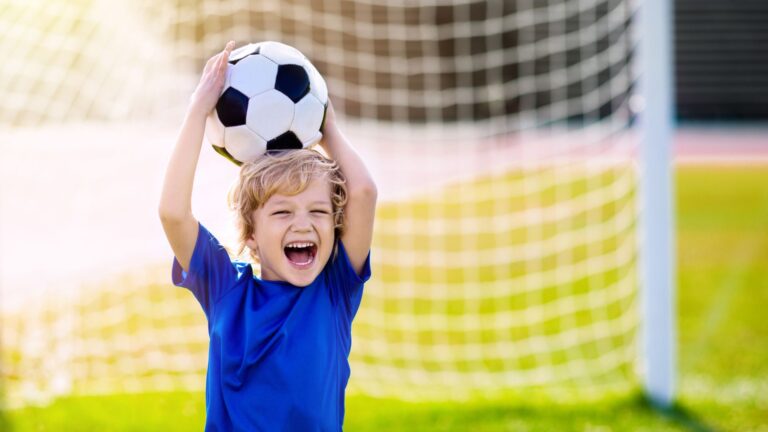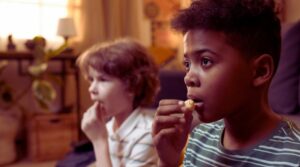Lionel Messi, one of the most prominent sports figures in the world, has been under close examination throughout his career for his accomplishments and behaviors. Over the years, many news publications, social media sites, and sports enthusiasts have attempted to label him as neurodivergent, inappropriately labeling him as someone who deals with autism spectrum disorder (ASD). Unfortunately, spreading false diagnosis rumors regarding a celebrity doesn’t only affect superstars like Messi. Many athletes from various sports have been subject to similar claims. When analyzing autism in sports, one of the main topics of discussion is ending rumors such as these and highlighting the accomplishments of athletes with ASD.
At ABA Centers of Florida, we see firsthand how autism affects individuals physically, mentally, and emotionally during our ABA therapy programs. What we don’t see, however, is any reason for spreading false allegations or rumors regarding whether or not a celebrity or athlete has autism. Instead, we aim to highlight these athletes’ stories to debunk false rumors, promote awareness, and emphasize the importance of embracing neurodiversity. Let’s look at some inspiring journeys of these incredible athletes and highlight the power of inclusion, perseverance, and the triumph of the human spirit.
Autism in Sports: The Problem with Misconceptions
A common and incorrect belief regarding autism spectrum disorder is that diagnosed individuals cannot perform physically demanding and athletic feats, such as those in professional sports. However, autism in sports is more prevalent than you may believe, and many athletes worldwide have publicized their autism journeys alongside their sporting accomplishments. Many of these athletes have thrived in their respective fields while navigating the unique challenges associated with autism, and their efforts are worth acknowledging.
Autism misconceptions perpetuate false assumptions and stereotypes, creating barriers to understanding and acceptance. One prevalent misconception is the belief that individuals on the autism spectrum lack abilities in certain areas, including sports. However, this notion disregards the diverse range of talents and strengths that individuals with autism possess. While studies show that those with ASD may face unique physical challenges throughout their lives, these do not define a person’s abilities or limit their potential for success in any field.
Another problem with autism misconceptions is the spread of false rumors, particularly regarding public figures and high-profile celebrities like Lionel Messi. Rumors and misinformation perpetuate harmful stereotypes, hindering progress toward true acceptance and understanding. It is essential to focus on accurate information and promote empathy and inclusion for individuals on the autism spectrum. By challenging these misconceptions, we can celebrate the unique talents and accomplishments of individuals with autism, including their remarkable contributions to the world of sports.
4 Athletes Diagnosed with Autism Spectrum Disorder
Below are some athletes who have received an autism diagnosis during their careers.
1. Tony Snell (NBA) – Basketball star Tony Snell recently discovered he had autism at 31, only after learning his 2-year-old son had it through an official diagnosis. Despite such a late diagnosis, Snell claims the news made sense and provided much-needed clarity. The former first-round draft pick played for half a dozen teams during his NBA tenure and now plays in the NBA G League.
Snell claims that not being diagnosed earlier in his career helped him reach the NBA. While his success and accomplishments are worthy of praise, this sentiment represents a more significant issue regarding autism in sports, in that if Snell was to have received a diagnosis earlier in his life, he doesn’t believe he would’ve received the same amount of attention, respect, and scouting interest. We must analyze why this could be the case as we attempt to shatter misconceptions and spark awareness. Tony Snell’s diagnosis does not diminish his capabilities on the court. For him to believe he may not have had the opportunity if people knew of this diagnosis earlier shows the frustrating and unfair criticism individuals with ASD face under the spotlight.
2. Jim Eisenreich (MLB) – In 1984, baseball player Jim Eisenreich voluntarily left the league due to a diagnosis of Tourette syndrome, which eventually led to an autism diagnosis. While undergoing treatment, he gained a deeper understanding of his challenges and soon returned to the league three years later. He won the World Series in 1997 with the Florida Marlins and enjoyed a highly respectable career that ended a year later. His .290 career batting average is a grand accomplishment, alongside his stellar defensive expertise at multiple positions.
Eisenreich’s story puts into perspective the desire of those with ASD to overcome adversity and personal challenges associated with their diagnosis. While no one particularly forced him out of the league, his introspective views and beliefs about his uncontrollable tics left him without answers and caused him to withdraw. Perhaps if the world understood these challenges better, Jim Eisenreich wouldn’t have needed to leave the league and could’ve kept playing during the mid-’80s.
3. Armani Williams (NASCAR) – Diagnosed with ASD at age two, motorsports driver Armani Williams spoke his first word at three years old. He struggled with social interactions and sensory issues growing up but learned to overcome and improve his situation with the help of his parents. Years later, he became the first NASCAR racer to acknowledge an autism spectrum disorder openly.
Even though he’s only 23, Armani Williams already has admirable aspirations and interests beyond racing. He hopes to become a spokesperson and advocate for individuals with autism spectrum disorder to promote awareness and avoid stigmas. He often utilizes blue color schemes on his attire and car modifications to raise this awareness.
4. Clay Marzo (Surfing) – Like many on the autism spectrum, surfer Clay Marzo received various misdiagnoses of ADD, ADHD, dyslexia, and other disorders throughout his childhood. It wasn’t until he was 18 that Marzo received a formal autism diagnosis. His story of breaking into surfing became a signature film entitled Just Add Water, which received plenty of coverage from ESPN and other news outlets.
Marzo has claimed he finds solace in the water but isn’t entirely comfortable in many social situations. He struggles with holding conversations, maintaining eye contact, and developing relationships, among other tribulations. His journey is a testament to the notion that a hyper-fixation on something, in his case surfing, is in no way a barrier toward reaching goals. Instead, he championed his struggles and turned his fixation into a career through perseverance and dedication to his craft.
ABA Therapy Can Break Stigmas Regarding Autism in Sports
Certain misconceptions about autism in sports and internal struggles faced by those with developmental challenges often deter individuals from pursuing their athletic prowess. While some athletes, such as Armani Williams, overcame these obstacles with support and guidance, this isn’t the case for all individuals who excel in sports.
Additionally, athletes like Lionel Messi embody the need to eradicate all stereotypes and stigmas that follow autism in sports. No one should ever feel like they can’t pursue their dreams out of fear of being improperly labeled or identified. Often, these individuals can find their true purpose with the help of other means, such as ABA therapy.
ABA therapy helps young children and teens be the best version of themselves. This therapy teaches various behavioral and developmental skills that can boost confidence, build tools and life skills, and help overcome challenges that would’ve otherwise prevented these people from taking the next step toward personal success.
Let Your Child Pursue Their Dreams with ABA Centers of Florida
ABA therapy can work wonders if your child needs extra support with their daily endeavors. ABA Centers of Florida provides proven autism care for children and teens with tailored programs that meet their needs and help them become their best in business, art, and even sports.
Contact us at (772) 773-1975 for more information regarding ABA therapy or to schedule a free consultation.








